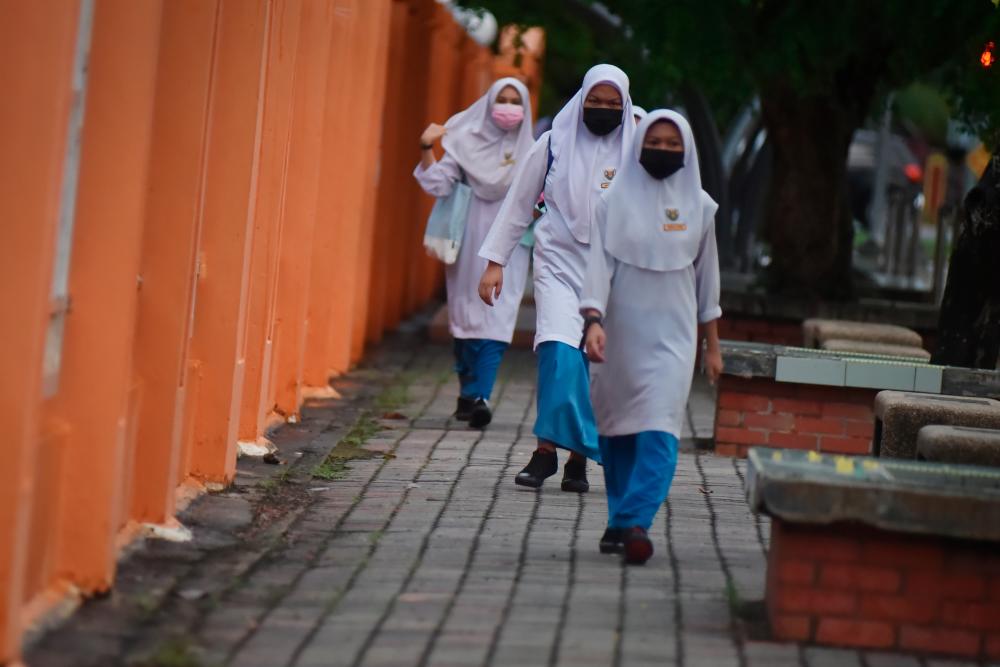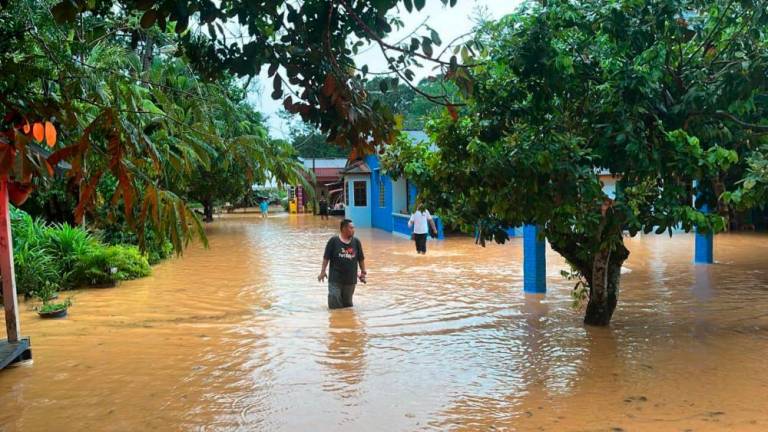KUALA LUMPUR, Jan 20: Parents of schoolgoing children are probably relieved with the government’s announcement that only students sitting for major examinations need to return to school when the 2021 school session begins today.
All primary pupils and students from Form 1 to Form 5, meanwhile, will follow home-based teaching and learning (PdPR) according to the suitability of the teachers and students.
In a statement issued on Jan 16, the Ministry of Education (MOE) said the decision was made following discussions with the Ministry of Health and the National Security Council in view of the recent COVID-19 case trend nationwide. Malaysia has been recording four-figure new COVID-19 cases every day in recent weeks and its total confirmed cases now stood at 165,371.
MOE said the face-to-face school sessions, commencing Jan 20, for the whole country would only involve students sitting for the 2020 Sijil Pelajaran Malaysia (SPM), Sijil Vokasional Malaysia (SVM), Sijil Kemahiran Malaysia (SKM), Sijil Tinggi Persekolahan Malaysia (STPM), Sijil Tinggi Agama Malaysia (STAM) and Malaysian Vocational Diploma (DVM) examinations as well as equivalent international examinations.
Educationists, meanwhile, have urged the authorities to bolster PdPR, which started in Malaysia last year after the Movement Control Order was first enforced in March, considering how difficult it is to estimate when the pandemic would end.
UKM Study
There is still room for improvement in PdPR as several issues had arisen since its implementation, particularly with regard to students and teachers’ readiness to embrace this teaching mode as part of the new normal in the education sector.
A study carried out by Universiti Kebangsaan Malaysia’s Faculty of Education on the readiness of teachers in implementing PdPR found that they encountered many problems whilst conducting online classes.
About 70 to 80 percent of the teachers who participated in the study said among the major challenges they faced were garnering the attention of the students and issues related to lack of devices and weaknesses in infrastructure and Internet access.
According to the findings of the study, student attendance did not attain 80 percent and many were not able to focus on the lessons due to the unconducive atmosphere at home.
The study also showed that 50 to 60 percent of the teachers were not comfortable conducting online classes while 50 to 60 percent of them conducted PdPR sessions for only one or two hours.
The UKM study also found that only 50 to 60 percent of the teachers possessed the IT skills to conduct online classes for their students.
The study, led by Associate Prof Dr Azlin Norhaini Mansor, revealed that the online teaching method was less effective as it did not correspond with the competency and learning levels of the students.
The findings also showed that PdPR offered limited communication between the students and teachers, with some teachers giving their students too much homework to do which burdened parents who were forced to help their children with their homework.
Constraints
Azlin Norhaini, who is chairman of UKM’s Centre of Education Leadership and Policy, said to strengthen and ensure the success of PdPR, collaboration among the teachers, students and parents is vital.
She said based on interviews with teachers, students and parents, it was found that they faced constraints and difficulties in implementing PdPR even though they had sufficient devices and Internet access.
“The students found it difficult to understand what was taught to them online due to the one-way communication... they couldn’t ask questions or seek clarification.
“In such instances, their parents had to tutor them and help them to complete their exercises,” she told Bernama, adding that in some cases the parents could not help either because they lacked the capability or had no time as they were working from home.
Many parents who, in the initial stages, tried to help their children to cope with their studies gave up after their children found themselves lagging behind in completing their exercises.
According to Azlin Norhaini, the creation of virtual schools is one of the measures that can be taken to strengthen PdPR.
“The virtual school can use media channels such as television, radio and even Netflix and Astro to broadcast lessons to students at both primary and secondary school levels. They (teachers) can come up with a schedule to teach two subjects for (up to) four hours a day,” she said, adding that four hours were sufficient as the students may get bored and lose focus if they are forced to stare at their screens for too long.
The virtual school concept, she added, was similar to the Quran study programmes available on certain television channels where the students can ask questions directly via WhatsApp.
Create one-stop PdPR Centre
Meanwhile, National Parent-Teacher Associations Consultative Council president Associate Prof Datuk Dr Mohamad Ali Hasan said PdPR is the best approach to take in light of the current situation.
Agreeing that the PdPR concept needs to be strengthened since it is still relatively new in Malaysia, he said one of the outstanding issues that has to be addressed is access to broadband Internet access, especially in rural and remote areas.
“What students really need to help them in the PdPR sessions are comprehensive and tested e-guidebooks. Effective monitoring and evaluation (of the students) are also required. These are the constraints the authorities must address systematically,” he said.
Mohamad Ali also proposed the creation of a PdPR referral centre at every district and state education office that can act as a one-stop centre to deal with any issue related to online classes.
“A special officer should also be appointed to coordinate and plan PdPR not only now but also after the pandemic has ended,” he added. - Bernama













